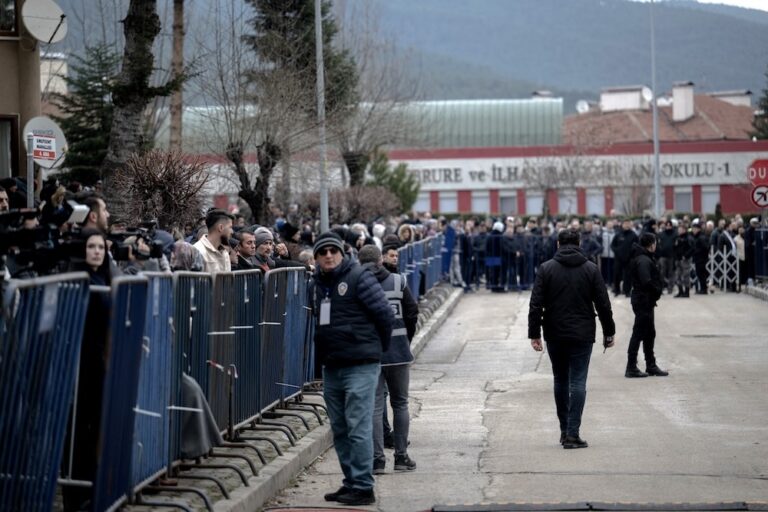(BIANET/IFEX) – An Ankara court has acquitted Mustafa Karayay, who faced three years’ imprisonment for criticising military service. “A man born in Turkey cannot have a duty to his fatherland just because he was born in Turkey. This is not only true for Turkey either. People are born naked, without sin, without debt, and most […]
(BIANET/IFEX) – An Ankara court has acquitted Mustafa Karayay, who faced three years’ imprisonment for criticising military service.
“A man born in Turkey cannot have a duty to his fatherland just because he was born in Turkey. This is not only true for Turkey either. People are born naked, without sin, without debt, and most importantly, without guns. No institution has the right to take over the life of a free person for a definite or indefinite time.”
Mustafa Karayay said these words in a speech on Yüksel Street, near Kizilay Square, in Ankara on 10 October 2008, when he announced that he was a conscientious objector. He had criticised military service, saying, “Many young people were taken in the prime of their life and killed in the name of military service. How can anyone pay the rights these people had?”
Karayay faced three years’ imprisonment for alienating the public from military service.
At the first hearing on 1 April at the Ankara 1st Criminal Court of Peace, Karayay told the court that he had expressed his own opinion and that his comments should be evaluated within the framework of freedom of expression.
The court hearing was monitored by members of the Conscientious Objection Committee of Ankara’s Human Rights Association (IHD).
The legal article in question, Article 318 of the Turkish Penal Code, came into effect on 1 June 2005 and reads:
(1) Persons who give incentives or make suggestions or spread propaganda which will have the effect of discouraging people from performing military service shall be sentenced to imprisonment for a term of six months to two years.
(2) If the act is committed through the medium of the press and media, the penalty shall be increased by half.


